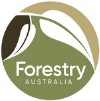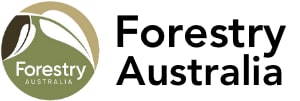
United Nations climate change report calls for urgent action and forestry management must be part of the solution
MEDIA RELEASE
10 August 2021
United Nations climate change report calls for urgent action and forestry management must be part of the solution The professional association representing some 1,000 forest scientists, researchers and professional forest land managers, the Institute of Foresters (IFA/AFG) says sustainable forestry management is an important part of the toolkit that will be required to curb the “unequivocal” human influence on climate change, as reported by the United Nations Intergovernmental Panel on Climate Change (IPCC). The new IPCC report paints a dire picture of the effects of current unprecedented climate change and highlights that urgent action is required now.
The Institute of Foresters of Australia and Australian Forest Growers President, Bob Gordon said that the IPCC has previously noted:
Sustainable forest management aimed at providing timber, fibre, biomass, non-timber resources and other ecosystem functions and services, can lower GHG emissions and can contribute to adaptation (IPCC, 2019).
In the long term, a sustainable forest management strategy aimed at maintaining or increasing forest carbon stocks, while producing an annual yield of timber, fibre, or energy from the forest, will generate the largest sustained mitigation benefit (IPCC, 2007).
Mr Gordon said, “Sustainable forestry – the science and craft of creating, managing, conserving, using and caring for forests – has a vital role to play in addressing climate change and will be key to ensuring a resilient and healthy future for Australian society and the environment.”
“Forests are one of Australia’s greatest natural assets, and Australia has first class forest management skills, experience and people, and an international reputation for sustainable management of our forests.
“However, as a nation, we can always do more. There are significant unrealised and exciting opportunities to manage our precious forests actively and adaptively across all land tenures including National Parks, State forests and private land to achieve best outcomes now, and into the future.
“As climate change continues to impact our forests and communities, better and more effective year-round land management and wildfire prevention activities are required. To do this, we need to ensure we continue to invest in human capital and support those equipped with the required specialised skill sets and knowledge.
“More investment in forest science and forest managers, and the right policy settings, would enable us to implement the active management approaches required to conserve and restore resilient forests and carbon stocks.
“A key path to achieving this lies in working with Indigenous Australians, who have looked after the land for tens of thousands of years.
“We must respect and embrace the knowledge and experience of Traditional Owners and participate in two-way capacity building to implement forest-based solutions to mitigating human-induced climate change, together.
ENDS
Media contact:
Becher Townshend
Font PR
418 370 661

